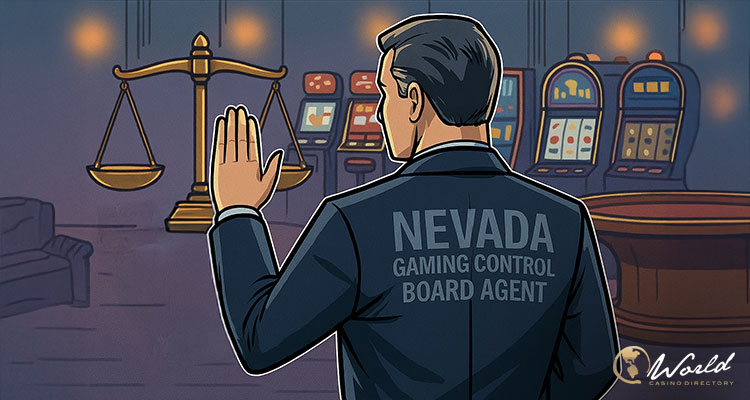Nevada’s gaming watchdog has intensified its stance against prediction markets, joining a growing list of state regulators warning that contracts based on sports, politics, or entertainment outcomes are considered unlawful betting activity.
On Wednesday, the Nevada Gaming Control Board (NGCB) issued a notice (pdf) titled “Sports Event Contracts Are Wagers,” underscoring that such contracts are deemed wagering under state law—“whether the contract is listed on an exchange regulated by the Commodity Futures Trading Commission (CFTC) or elsewhere.”
The notice cautioned that any licensed entity offering these types of contracts, or partnering with companies that do so, may face suitability reviews or disciplinary actions. This applies even if the activities occur outside Nevada or on tribal lands.
The NGCB explicitly listed the World Series of Poker, the Oscars, Esports, and political elections among examples of events that fall within its definition of prohibited wagering. As the letter stated, “Offerings for sports and other events contracts may be conducted in Nevada only if the offering entity possesses a nonrestricted gaming license with sports pool approval in Nevada and meets the other requirements for sports wagering including, without limitation, wagering accounts and sports book systems.”
Assad’s Strong Words Reflect Board’s Sentiment
The warning aligns with comments made earlier this month by board member George Assad, who criticized prediction markets during an October 8 hearing. Assad characterized them as “nothing more than a word salad” and celebrated recent court decisions restricting such platforms.
“A derivative contract or whatever you want to call it is nothing more than a sports wager,” Assad said. “A sports wager is a sports wager. Every bet made in this town is a contract.”
He went on to argue that prediction markets, regardless of how they’re labeled, remain under the NGCB’s jurisdiction. Nevada’s resistance to these platforms has been long-standing. In March, the state issued a cease-and-desist order to Kalshi, leading to a lawsuit that temporarily allowed the company to continue operations through a preliminary injunction—now under appeal.
Similar legal battles followed with Crypto.com and Robinhood, both of which sued the board after receiving similar orders. In recent rulings, Judge Andrew Gordon upheld Kalshi’s injunction but denied Crypto.com’s, concluding that the company’s argument about its “swap” contracts failed to demonstrate a clear preemption over state law.
Dreitzer Emphasizes Balance Between Innovation and Compliance
Despite the firm stance, NGCB Chair Mike Dreitzer has expressed a nuanced position. Speaking at the Global Gaming Expo in Las Vegas, Dreitzer said Nevada is “open for business” when it comes to technological advancement, but innovation must operate within existing legal frameworks.
“We want to foster innovation, we want to find a way to bring it to Nevada as early as possible, but it has to be done in conjunction with the legal requirements,” he said. Dreitzer noted that the state’s position on prediction markets was established before his tenure, though he emphasized a willingness to engage with compliant companies.
His comments contrasted with those of Missouri Gaming Commission executive director Mike Leara, who criticized prediction markets outright during the same panel.
Industry Reactions and Legal Outlook
The NGCB confirmed it had received “direct inquiries” from licensees about prediction market partnerships. Prominent operators such as FanDuel, DraftKings, and Underdog have explored related ventures in other states—FanDuel through a deal with CME Group and Underdog through a collaboration with Crypto.com.
However, these companies lack Nevada licenses due to the state’s in-person registration requirement, while others like Caesars Sportsbook and BetMGM have refrained from entering the space. During a recent earnings call, BetMGM CEO Adam Greenblatt stated that “as the law stands today, sports predictions markets are — in essence — illegal sports betting.”
Nevada’s major casino operators, represented by the Nevada Resort Association (NRA), have been vocal in their opposition. NRA President Virginia Valentine told iGB that prediction market companies are “gambling with no regulation” and lack consumer safeguards. “There are no requirements for responsible gambling, they don’t pay any state income tax,” she said. “So it looks a lot like gambling, and we’ll see. Is it the future of gambling or is it the end of sportsbooks? I don’t know, but we’re going to be watching that very closely.”
As multiple lawsuits unfold nationwide, the conflict between state regulators and prediction market platforms continues to test the boundaries between gaming law and financial regulation.


